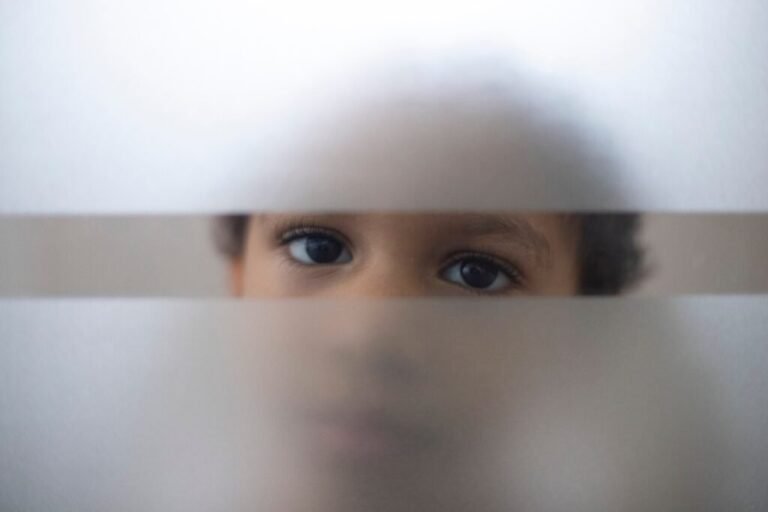Shedding light on sexual abuse in educational institutions. Educational institutions play a critical role in shaping the minds and futures of the youth. However, his appearance sexual abuse in schools and academic environments have become an alarming issue that requires immediate attention. It is important to shed light on this issue, raise awareness and implement preventive measures to protect the welfare of students.
This article aims to explore the importance of addressing sexual abuse in educational institutions and highlights the need for comprehensive measures to ensure a safe and secure environment for all students.
6 Measures to prevent sexual abuse in schools
Understanding the scope of the issue
Sexual abuse in educational institutions encompasses a range of misconduct, including harassment, assault, exploitation and grooming. It is important to recognize that this issue can affect students of all genders, ages and backgrounds. By understanding the scope of the problem, educational institutions can take proactive measures to prevent and address cases of sexual abuse.
Creating a Culture of Awareness and Prevention
Educational institutions are responsible for creating a culture of sexual abuse awareness and prevention. This includes educating students, teachers, staff and parents about recognizing signs of abuse, promoting consent and healthy boundaries, and fostering an environment where individuals feel safe to report any incidents or concerns. By promoting awareness and prevention, institutions can create an atmosphere of accountability and deter potential abusers.
Stopping sexual abuse requires a collective effort from the entire community. It is important to recognize that perpetrators of sexual abuse often hide behind a facade of credibility or hold positions of authority in educational institutions. They may be people who are known and respected by both the survivor and the community, making the abuse even more difficult to detect.
Implementation of Overall Policies and Procedures
Educational institutions must have comprehensive policies and procedures in place to effectively address sexual abuse. These policies should include accurate reporting mechanisms, research protocols and support services for survivors. It is vital to establish a confidential reporting system that protects the privacy and safety of victims by encouraging them to come forward without fear of retaliation.
Staff Training and Empowerment
Staff members, including teachers, administrators, and support staff, should receive regular training on how to identify, prevent, and respond to sexual abuse. Training programs should cover topics such as recognizing warning signs, appropriate thresholds, mandatory reporting and trauma-informed approaches. By equipping staff with the necessary knowledge and skills, institutions can foster a safer environment and ensure early intervention when needed.
Student participation in prevention efforts
Student involvement in prevention efforts can be a powerful tool in the fight against sexual abuse. Educational institutions should promote dialogue, awareness campaigns and peer education programs to empower students to become advocates for their own well-being and that of their peers. Encouraging open discussions about consent, healthy relationships and boundaries can help create a supportive and respectful school community.
Cooperation with External Support Services
Educational institutions should establish partnerships with external support services such as counseling centres, helplines and community organizations specializing in dealing with sexual abuse. These partnerships can provide additional resources, expertise and support to survivors and contribute to a holistic approach to abuse case management.
Support survivors of sexual abuse
Addressing sexual abuse in educational institutions is a critical step in ensuring the well-being and safety of students. By shedding light on this issue, promoting awareness and implementing comprehensive measures, educational institutions can create an environment that promotes respect, safety and trust. It is the collective responsibility of administrators, staff, students, parents, and the community to work together, advocate for change, and protect the rights and dignity of every student. By taking proactive measures, educational institutions can become beacons of safety and empower students to reach their full potential without the fear of sexual abuse.
In addition, it is important to emphasize that if you know someone who is experiencing sexual abuse in an educational institution, it is necessary to take action and support them. Never hesitate to ask for help from them. The survivor’s confidentiality and well-being must be the highest priority.
Our organization offers confidential counseling and support services for survivors of sexual abuse in educational settings. We understand the sensitivity of these issues and the importance of providing a safe space for individuals to share their experiences.
Our dedicated team of legal recruitment specialists is made up of trained social workers who approach each case with empathy, respect and a commitment to supporting survivors. They are here to listen, provide guidance and help survivors explore their options without any pressure to pursue legal claims. We understand that each survivor’s journey is unique and our services are tailored to meet their unique needs and circumstances.
Remember, you are not alone and support is available. Together, we can work to create a safer and more secure environment in educational institutions, ensuring that the well-being of students is protected and that survivors receive the care and help they deserve.
